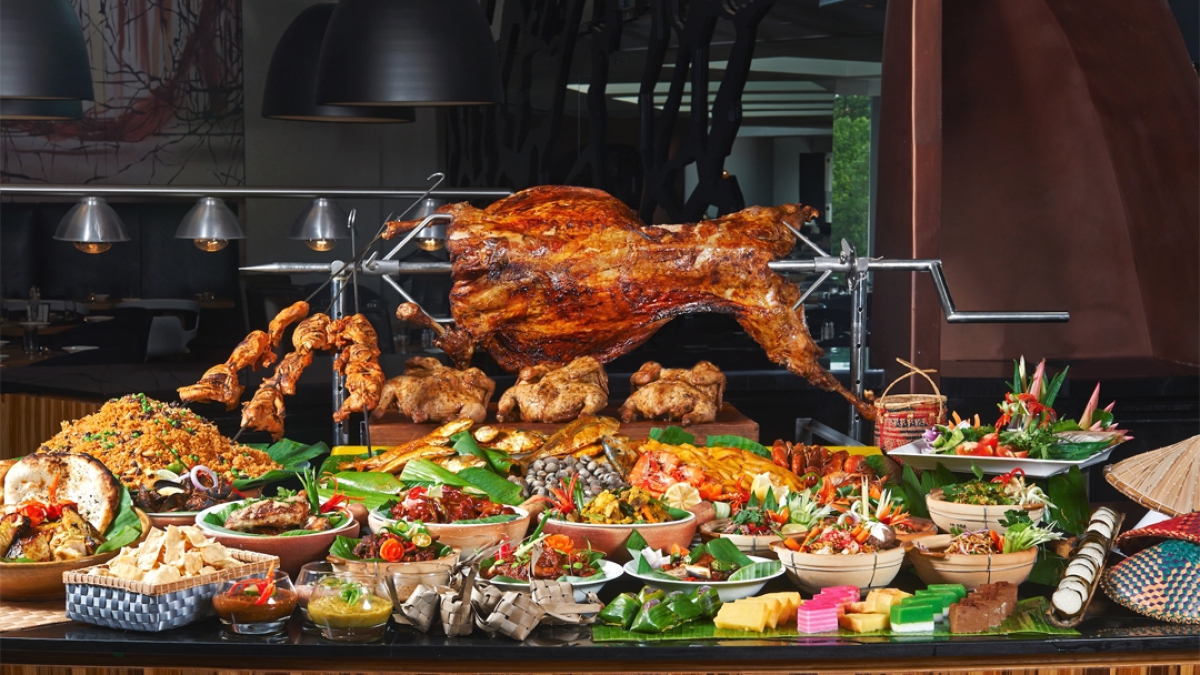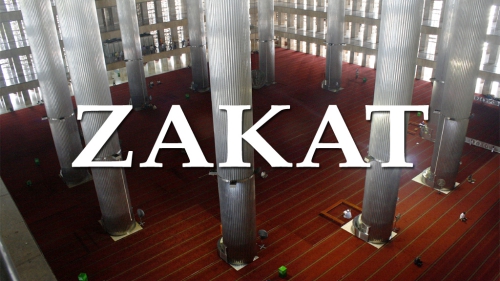Ramadan Extravaganza

In mosques all over the country, at the time of breaking the fast, a festival of food is being served. This year, Muslim Americans will spend close to $10 million on feeding those who are already fed. On an average each mosque will spend some where between $500 to $2000 daily to serve food and beverages. Of the food that is being served, a large amount is being wasted as the believers will have no appetite to consume after filling their plates thrice the size of their normal diet. It is a different thing that every evening while listening to the Quran in taraweeh prayers, they would marvel at the words of the God that inspires us not to waste and overspend.
Ramadan has become a month of parties and food and not many are willing to challenge that concept of raveling specially when more than half of the Muslim world sleeps hungry and more than 40 percent of the world does not have a decent meal.
Imagine, if the $10 million being spent on Ramadan food is used to pay off the mortgages that many Mosques have, to finance the education of poor children, to build schools and to promote print or electronic media, how great an impact it would create on the social life of Muslims, yet few are willing to talk about it.
Ramadan to our prophet was a month of simplicity. He would break his fast with half a date and water or a glass of milk if he could get one. Eating meat was a luxury. Eating a full meal was unthinkable. Much emphasis was placed on reflections, self improvement and personality growth. Under his leadership, his companions would form circles to ponder on the ayas of the Quran. They would spread out in the streets of Medina to ensure that people do not sleep hungry and children are fed properly. They would invite people to read the divine message and think on the verses of the Quran and each would try to surpass the other in acts of generosity. They would ensure that their prayers are regular and they do not miss obligatory prayers in the Mosque. It was the simplicity that marked Ramadan during the life time of the Prophet.
Simplicity is far from anything that you would see in our mosques during the iftar today. The irony is that some people will even forego the obligatory prayers as it would interfere with their food. In many places one can see people fighting with each other over getting the best portion of the meat. If they do not find what they are looking for, they would even curse the organizers. They would even complain if the food is not of their taste. This is of course not the norm but ask any Mosque organizer and they will attest that this does happen.
Ramadan was meant to inspire in us the feeling of caring and sharing. It was meant to create discipline among us. But far from it, the iftar gathering in our Mosques have become a big embarrassment.
Ramadan is meant to motivate us to sacrifice for others. It is meant to purify us from our weakness. We are often told that that by fasting, we feel the pain of hunger and thirst of millions of less fortunate people. The purpose was that we would give preference to the needs of the poor over our needs. Yet, during the month, many of us pay little attention to the poor and needy. Very few Mosques in the country make any systematic effort to identify those who are unable to afford a decent meal and then serve them quietly.
Can we return to the simplicity of the Prophet? We can if our teachers, scholars and all people of conscious start taking a stand on this issue. Unfortunately, we are all promoting this extravaganza by being a part of it and approving of it and congratulating the hosts for adding so many dishes on the menu.
Let's try to set an example by focusing on personal growth and serving the needy and the poor from our homes and our Mosques. Let's feed the homeless of our city every day of the month of fasting. This will require a greater personal sacrifice then just abstaining from food and drink all day and only those will be ready to do this, who are willing to follow in the footsteps of our beloved Prophet.
Topics: Extravagance, Food, Israf, Ramadan
Views: 5964
Related Suggestions
I agree with the article and this is really the sad picture of our attitude and undersanding of the true sense of Islam.
The sentence that is "feeding to the ones who are already fed too much" is really the true picture of the society hear as well.
i pray for the bettrement om muslim brthers and sisters for their undestanding of the true sens of Qurand and Prophet PBUH teahings.
Point#1: Wastage. I agree 100% that wastage must
be controlled. This should be done by discipline
and advice, not by eliminating iftaars. The
person hosting the Iftaar should make to-go boxes
for sehri or take the extra food to the nearest
soup kitchen and feed the homeless/hungry.
#2: Money cost of itaars. Here's where I
disagree. The reason for Iftaar is so the
community can come together in harmony and enjoy
the company of Muslim brothers and break bread
with them. If $10million is spent in 1 year
across the US for the fadail of feed a fasting
person and to increase brotherhood, it is money
well spent. If Muslims in the US don't spend $10
million on iftaars, will they donate that to the
Masjid for the mortgage? I am not so sure.
Muslims should pay off the masjid loans
regardless of whether iftaars happen or not. It
is because they choose not to, not because they
used that money on iftaars.
#3 Simple iftaars. True the Sahabis and the
Prophet SAW led a simple life and ate simple
food. Prophet SAW and the Sahabi did not just
give advice, they became examples. They
implemented it in their life 100% and then
inspired others to follow. How can I eat chicken
and mutton at home and when it comes to feeding a
fasting person at the masjid give him just date
and water? We must first implement simplicity in
our own homes, and it will automatically follow
into the masjid iftaars.
Point#4 Caring for the poor and hungry: I agree
that we must spend and care for the poor and
hungry. In Ramadan we feel the pain of thirst
and hunger, but do we do anything about it? And
stopping community iftaars is suddenly going to
give us the passion to feed the poor? The
solution is to have orgs such as Hidaya and IMRC
come to the Iftaar and talk about how we can help
the poor and hungry. And this needs to happen
not just in Rama
I think the author exaggerated a bit. Unfortunately, there might be some waste but I don't think it is in the scale the author suggested. The masjid that I attended spend about $200 a night. The reason I know is because they ask us to donate and for a good cause I don't mind giving even though my family and I don't eat at the masjid because we prefer to eat at home. Our food is simple and not exotic like the dishes from the indo-pakistan region.
Also, I can see that a lot of people that go to eat at the masjid are those that are not very well off. I think the masjid is doing its very best to feed all the poor people. The menu is simple, rice, a piece of meat and some salad.
A lot of time, the local restaurant donate the food.
I think the masjid should still cater for the people who comes for iftar but do it with great concern on the budget.Also the imam should remind people not to waste and also just take the portion that they could eat. Most masjid's imam do remind people about it.
I like the community spirit that the iftar event promote. I wished I could join but my family does not enjoy spicy food so we pray maghrib at home and then go for tarawih
Not only that but all muslims whether Sunni, Shia, Sufi or whatever should be united as one considering we all believe in One prophet Mohammad S.A.W. and One QURAN.
MAY ALLAH BLESS US ALL. AMIN
islamicity,i think the author or the islamicity should send this
article to various masajid or islamic and muslim centers to crfeate
awareness.didnt islamicity have an article of iftaar at the haram too.
the emphasis should be not to abplish the practice but to try to
channel this generosity to the needy and the travelers.
As Salaam Alaikum, Brother. I agree with you totally. If we are to truly be blessed by Allah we must not give in to appetites unchecked by knowledge. We are simply greedy and don't want anyone to tell us the truth. I pray that I continue to grow spiritually and not take part in such activities. So far this Ramadan I have not eaten at the masjid during Iftar, mainly because I have been too tired after work. However, that has been a blessing in disguise while Allah was allowing you to bring me this beautiful reminder of following the example of our beloved Prophet, on him be peace.
Ramadan Mubarak

















